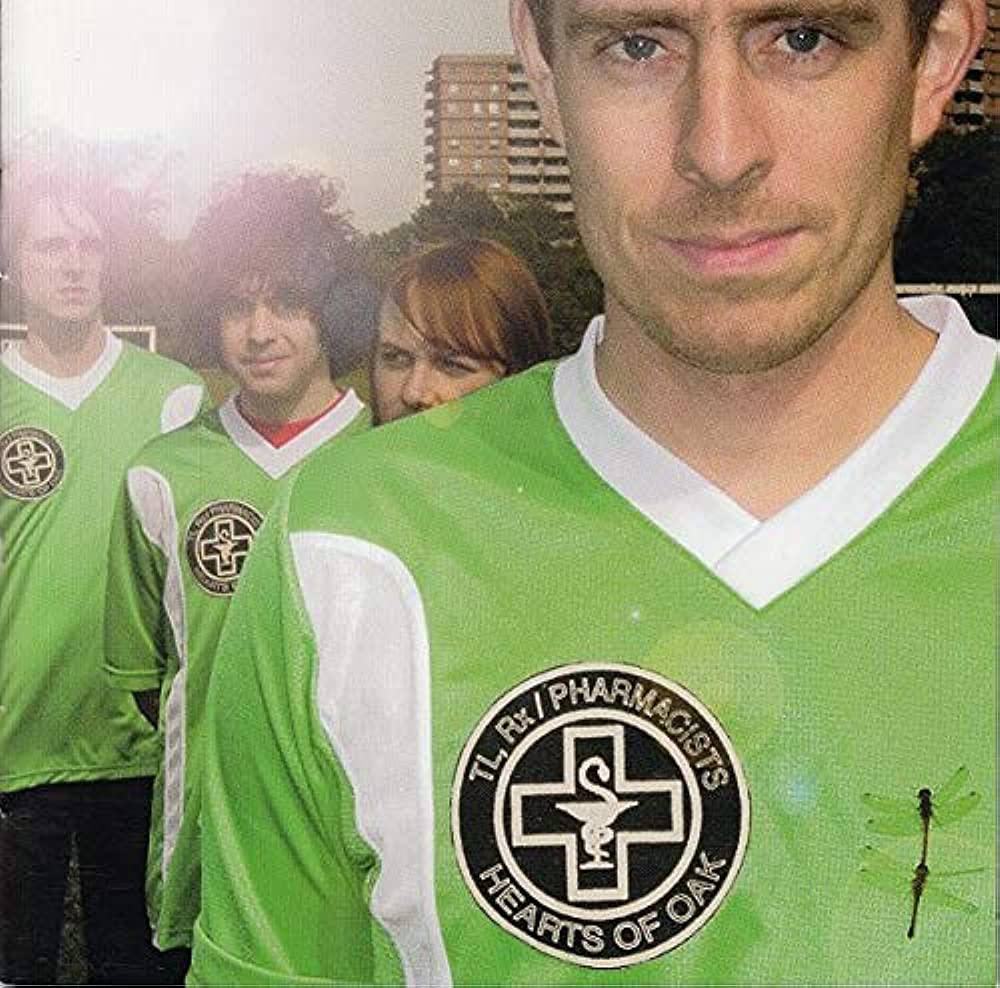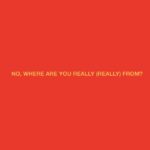It Holds Up: Ted Leo and The Pharmacists – ‘Hearts of Oak’
Posted: by The Alt Editing Staff

A snapshot of a worried mind in the early 2000s, Ted Leo and the Pharmacists’ Hearts of Oak holds up because the music captured the chaos of the time, like the best music always does. The album is far from a political concept album, but Leo’s leftist politics cannot help but sneak in, in the same way that politics seeped into everyone’s lives with the events of the early W. Bush years. “The High Party,” in particular, is impossible to listen to without thinking of the War on Terror, even as the unforgettable opening riff begs you to focus on it instead. Leo approaches it all with a feeling of unconventionality, often ignoring the straightforward structures that dominated much of the punk of the day and opting for odd rhythms, unhinged percussion, and some buzzsaw guitar sounds to create a canvas for the anxious lyrics to spill out on.
After the eerie, violin-laced opener “Building Skyscrapers in the Basement,” things really kick into gear with “Where Have All the Rudeboys Gone?” the lead single from the record and the song that brought Hearts of Oak to my attention while perusing Lookout! Records’ website for more of that sweet, sweet punk rock as a middle-schooler. A loving nod to The Specials, the tune is a great example of what makes Hearts of Oak still sound so fresh on every revisit. The opening riff is sick but there’s something about it that keeps you off balance, the the drawn-out falsetto lines in the verse are a bold choice (that pays off), there are times the tambourine cuts through the mix in an almost intrusive way. There’s a fucking round. But everything is perfect, and it’s this rejection of convention that makes Hearts of Oak work so well.
It’s followed by “I’m A Ghost,” a rocker with a fuzzed-out bass absolutely blaring through as the straightforward snare pattern drives everything along, and then “The High Party”—surely a center point of the album and the track most blatantly about the state of politics at the time, particularly in the line “I’m looking for another way / to process what happened on that birthday” (Leo’s birthday is September 11th). To make an understatement, it was kind of a wild time in America. While the record came out little more than a month before the invasion of Iraq, it was clear George Bush wasn’t satisfied with just Afghanistan, and that feeling of inevitability when it came to the War on Terror spreading is captured in the blunt lines “and if there’s a war / another shitty war to fight for Babylon / it’s the perfect storm in a teacup / but you must drink it down.” The song is far from a downer though, with a shimmering organ floating behind the chorus of “and what do you make of nights when you thought you’d make much more / than being too drunk to turn the lights out and too tired to drink more? / And what does it take to not hear the cynics at your door? / Saying it’s time to turn the lights out and you want to keep it down.” On top of everything, the tune’s repeated riff is a paragon of a punk riff: complex enough to catch your ear, but not so complex that a beginner guitarist couldn’t pick through it after a half hour or so of practice.
“Hearts of Oak” and “The Ballad of the Sin Eater” highlight both the open space and use of auxiliary percussion that work so well on Hearts of Oak. The title track builds the verse instrumentals from a grinding guitar riff, a relatively calm bass line, and a pandemonium of percussion. Leo attacks the guitar in the verse riff and extended solo as if he’s working out all of his frustrations and anxieties from the atmosphere in America through grimy guitar runs, playing with a primal feeling while never dropping the groove. “The Ballad of Sin Eater” echoes the fuzzed bass from “I’m A Ghost,” but this time cranked even more, and the auxiliary percussion is especially creative here making for a wild and raw sound that matches the forward motion of the lyrics, which presumably follow Leo through a European tour with the refrain of “you didn’t think they could hate you, now did you? / Ah, but they hate you, make no mistake, they hate you.”
There are no bad tunes on Hearts of Oak, but the one-two punch of rollicking rocker “Bridges, Squares” and the blazing “Tell Balgeary, Balgury Is Dead” certainly stand out on the album’s second half. “Bridges, Squares” is probably the most straightforward rock and roll tune here, but Leo still manages to make it sound wonderfully odd with the sugary chorus of “but it’s not the time to ossify / not the end of wondering why / not in your faith or your apostasy / not the end of history.” After three clicks and a slide in from the organ, “Tell Balgeary, Balgury Is Dead” blasts off, with a frantic call and response between the guitar chords and riffs in the verse, another catchy chorus with organ draped overtop, and a catapulting key change all before the funky coda. Probably more than any other track, “Tell Balgeary, Balgury Is Dead” captures the wild and unconventional sound Leo and the Pharmacists work with on Hearts of Oak, sounding like a radio hit in the chorus and an aggressively unbalancing attack in the verse.
Album closer “The Crane Takes Flight” kicks into gear with the return of the violin from “Building Skyscrapers in the Basement” and a rushing, chugging guitar line. For maybe the first time on the record, there’s a real feeling of hope, as Leo playfully doubles the guitar solo with a whistle and the violin adds a sense of cabin comfort to the final lines of “I told you they’ve had power all along / So don’t you let you tell you that you’re wrong,” before closing the record solo.
I would imagine there isn’t a real consensus amongst Ted Leo fans on a favorite record. Surely Shake the Sheets—out a year later and even more consciously political—rightfully has its share of supporters, likewise with the rawer, looser The Tyranny of Distance. But, landing between those two records, Hearts of Oak seems to have come at a perfect time to capture Leo’s genuine, heartfelt, and chaotic style.
–
Aaron Eisenreich | @slobboyreject
The Alternative is ad-free and 100% supported by our readers. If you’d like to help us produce more content and promote more great new music, please consider donating to our Patreon page, which also allows you to receive sweet perks like free albums and The Alternative merch.










